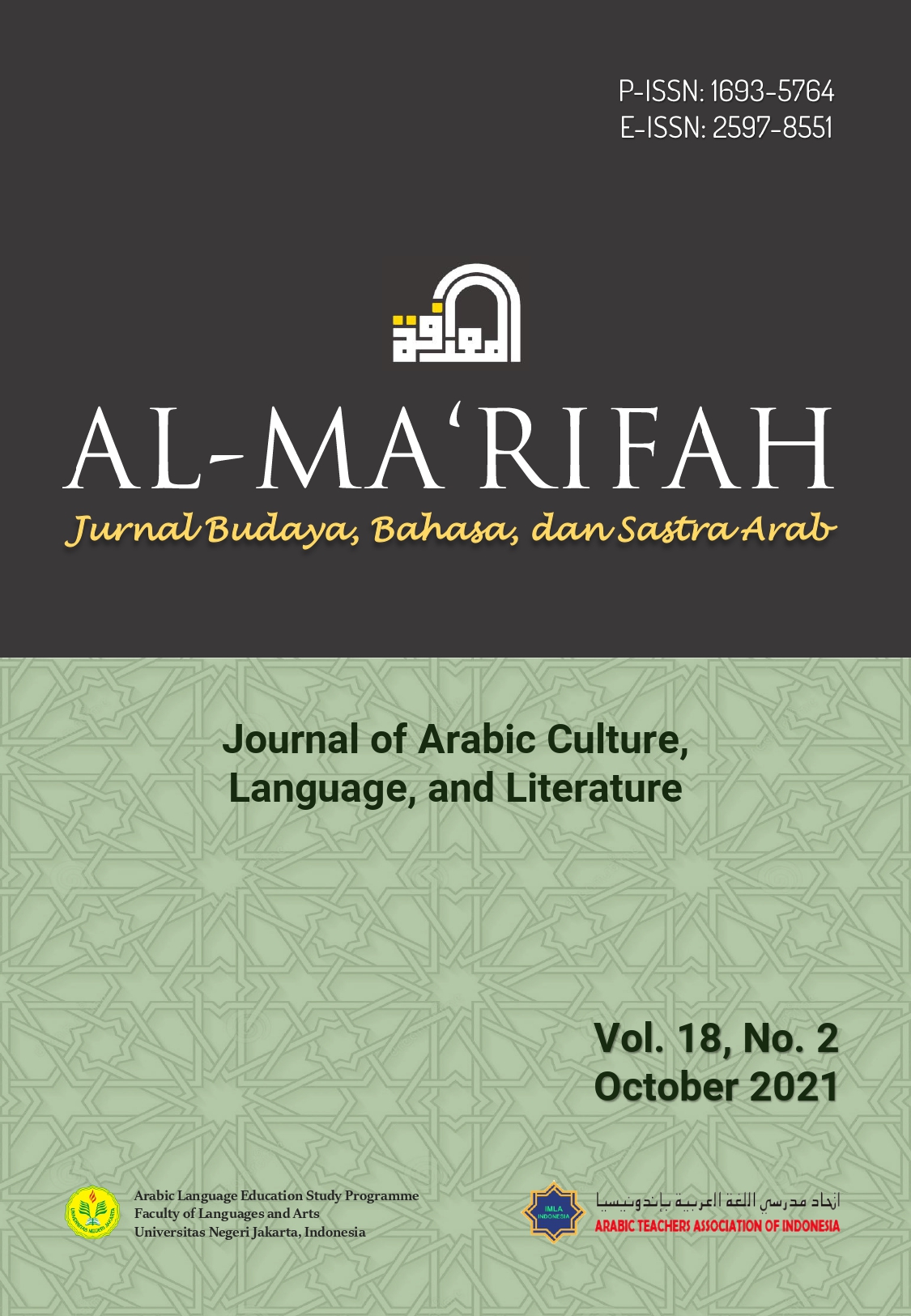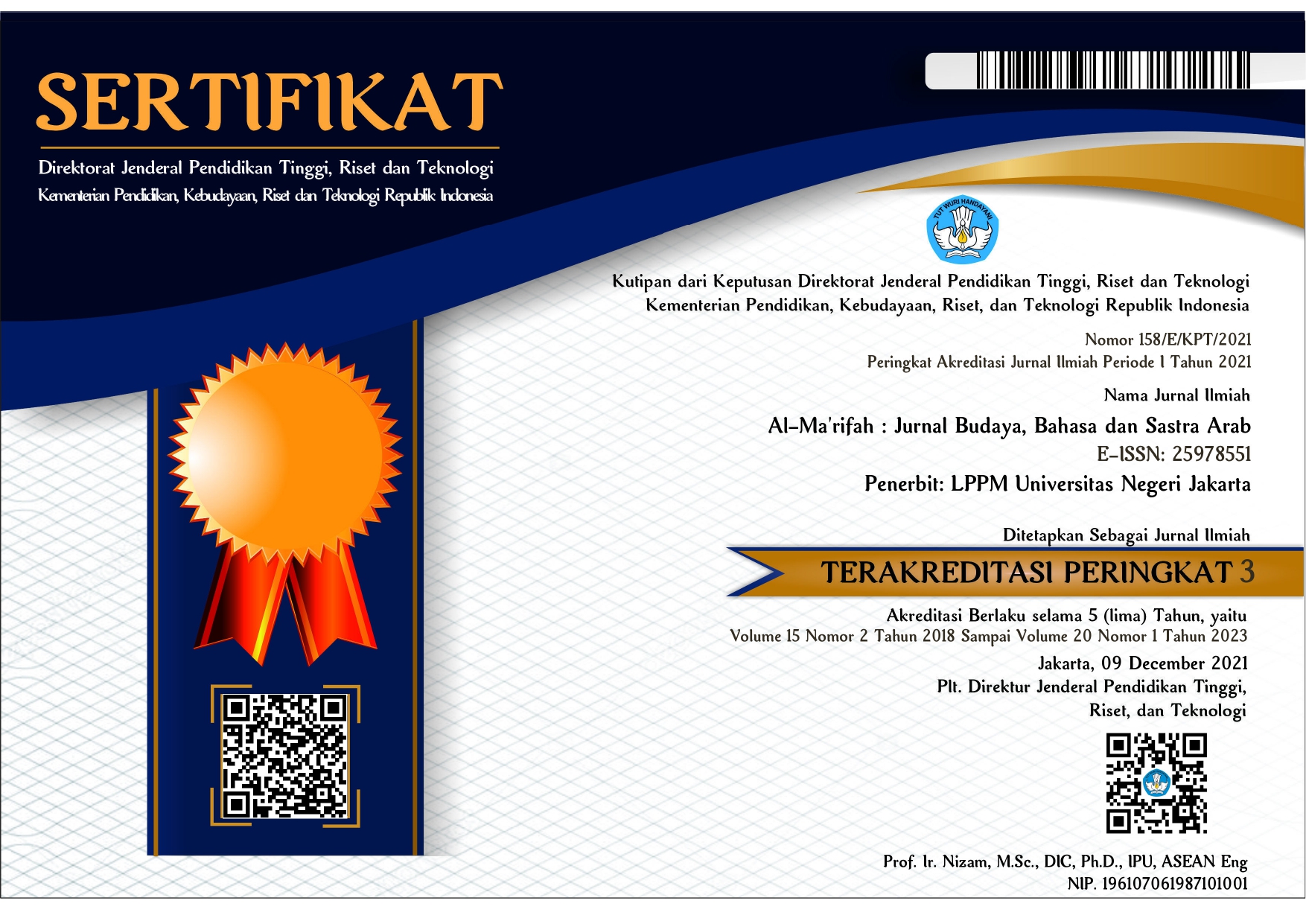Makna Perintah dalam Al-Qur’an Surah Yūsuf
DOI:
https://doi.org/10.21009/almakrifah.18.02.07Keywords:
Command sentences, meaning, surah YūsufAbstract
This study aims to determine how much the imperative sentences (amr) is used, its meaning, and its purpose in surah Yūsuf. This study uses a qualitative descriptive method that describes the existing data. The data is obtained from the verses of the Quran surah Yūsuf, which contains the commandment sentences. The results of this study indicate that in surah Yūsuf there are 32 command sentences, namely in verses 9(2), 10, 12, 21, 23, 29(2), 31, 36, 42, 43, 46, 50(2), 54, 55, 59, 62, 63, 67, 78, 81(2), 82, 87, 88, 93, 97, 99, 101, and 108. The results of the 32 data show 31 in the form of fi‘l amr and 1 in the form of isim fi‘l amr. Then, of the 32 command sentences, there are 19 which have an essential command meaning. In addition, there are some deviations in the meaning of the command sentences in surah Yūsuf, (1) the meaning of irshād, found in verses 29, 50, and 67; (2) the meaning of takhyīr in verse 9; and (3) the meaning of prayer (du‘ā’) in verses 12, 55, 63, 78, 88, 97, and 101.
References
Hayuningparasati, K., & Kuswardono, S. (2019). Fi‘il amr dan fi‘il nahyi dalam Al-Qur’an: Analisis morfosintaksis. Lisanul Arab: Journal of Arabic Learning and Teaching, 8(1), 67–73. retrieved from https://journal.unnes.ac.id/sju/index.php/laa/article/view/32544
Keraf, G. (1984). Tata bahasa Indonesia. Flores: Nusa Indah.
Maulana, D. (2019). Analisis kalimat perintah (amr) pada surah Yāsin dalam terjemahan Al-Qur’an Bacaan Mulia HBJ. Alsuniyat: Jurnal Penelitian, Bahasa, Sastra, dan Budaya Arab, 2(1), 1–14. doi:10.17509/alsuniyat.v2i1.24348
Moleong, L. J. (2007). Metodoligi penelitian kualitatif. Bandung: PT. Remaja Rosdakarya.
Sehri, A., & Alitaetah. (2020). Analisis struktur makna fi‘il amr dalam Al-qur’an surah Al-Nur. Albariq: Jurnal Pendidikan Bahasa Arab, 1(2), 17–30. doi:10.24239/albariq.v1i2.8
Downloads
Published
How to Cite
Issue
Section
License
Copyright (c) 2021 Muhammad Ichsan Haikal, Nur Roudhatul Jannah

This work is licensed under a Creative Commons Attribution 4.0 International License.











